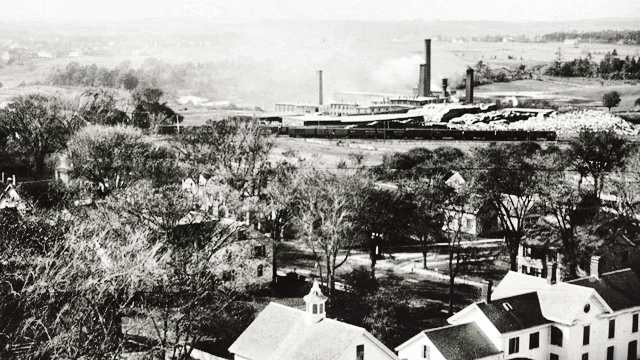In the heart of Maine, there’s an old legend about Major Thomas Means. He was a brave soldier during the Revolutionary War, serving alongside General Washington at Valley Forge and fighting under “Mad” Anthony Wayne at the Battle of Stony Point. After the war, he returned to his hometown of North Yarmouth in 1779, having earned the rank of Major.
A Tragic Past
Years before, in 1756, tragedy struck the Means family. Thomas lost his father and other relatives when the Micmac Indians attacked their settlement. The Means farm was just half a mile from the fort where most of the community sought refuge. However, the Means family decided to stay at their farm until morning. Unfortunately, they were attacked before they could escape.
During the assault, Thomas Sr. was killed instantly, and his mother was wounded. Months later, she gave birth to a baby boy named after his deceased father. At just 18 years old, Thomas Jr. joined the army as a private and fought bravely alongside other Colonial forces.
New Beginning
By 1807, Thomas had become a respected gentleman in the community. His peers still called him “Major.” He purchased a home that once belonged to the town’s minister and opened it as a tavern on Main Street.

One evening, while serving patrons, a tall, older Indian entered the tavern and ordered rum. As Thomas served him, the man boasted about being part of a war party that had massacred a family near the fort years earlier. It suddenly dawned on Thomas and his patrons that this was the very man who had killed his father.
Dark Decision
As the Indian drank more, Thomas decided to take action. He escorted the man to a small guest room above the tavern, known as the “monitor room.” After that night, the townsfolk never saw the Indian again.
Soon after, Thomas began to experience strange occurrences. He was awakened by “flashing lights and uncanny sounds” coming from the monitor room. He even saw the figure of the Indian moving back and forth in the small space. These hauntings became relentless, especially during storms, and they continued for years, driving Thomas to the brink of madness.
Confession and Continued Hauntings
On his deathbed in 1828, Thomas confessed to his son that he had killed the Indian with a hatchet, seeking revenge for his father’s death. He had even scalped the man. However, this confession did not bring peace. The haunting in the monitor room persisted for another 50 years after Thomas’s death.
It wasn’t until the late 1970s, when new owners renovated the tavern’s upstairs, that the troubled ghost finally found rest. The renovations seemed to calm the restless spirit, allowing the legend of Major Thomas Means and his ghostly encounter to fade into history.
Conclusion: A Tale of Revenge and Restlessness
The story of Major Thomas Means is a haunting reminder of the past. It reflects the pain of loss and the desire for revenge that can linger long after a tragedy. The tavern in North Yarmouth stands as a testament to this legend, where the echoes of history and the supernatural intertwine.
Whether you believe in ghosts or not, the tale of Major Means and the haunted monitor room continues to intrigue those who hear it. It serves as a reminder that some stories, no matter how old, never truly fade away.

